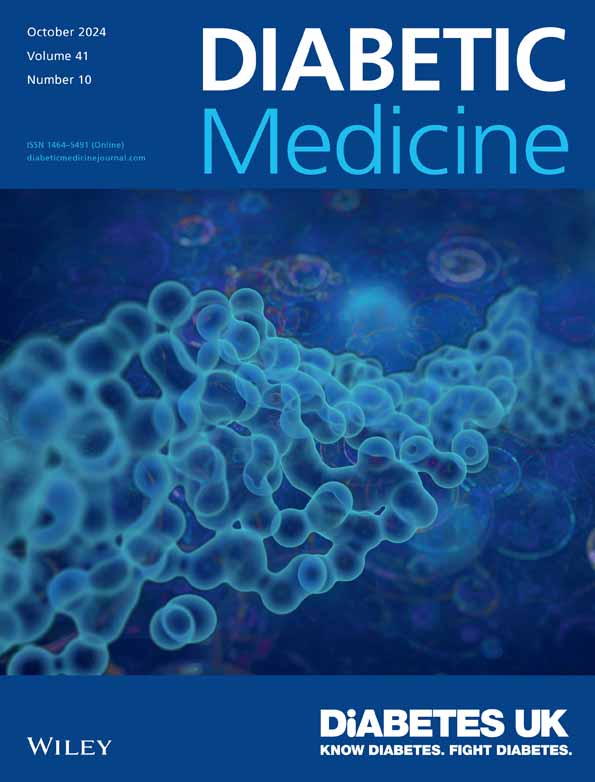Exploring the lived experience of women with gestational diabetes: A cross-sectional Irish national survey
Abstract
Aim
Gestational diabetes (GDM) poses risks of short- and long-term complications for mother and infant, emphasising the importance of antenatal and postpartum education and support. We aimed to understand the experiences and views of women with GDM in the Republic of Ireland.
Methods
Women with current or previous GDM were invited to complete an online cross-sectional survey (April–June 2022). Recruitment utilised social media, local media and personal networks. The survey addressed demographics, GDM knowledge and experiences, breastfeeding and weight management during pregnancy and post-pregnancy GDM support needs. Descriptive statistics were conducted, and between-group comparisons were undertaken using the chi-square test. Content analysis was applied to free text data.
Results
Amongst 231 respondents, most were aged 35–39 (42%); 70% experienced a single GDM pregnancy. Only 6% correctly identified their increased level of risk for developing type 2 diabetes. Under half (44.5%) of respondents reported sufficient time with health professionals to address GDM-related questions. Just over half (54.3%) reported attending for diabetes screening at 6–12 weeks postpartum. The majority (66%) expressed a desire for postpartum information, particularly on healthy eating and physical activity. Having a more recent GDM experience was associated with a stronger preference for weaning (p ≤ 0.001) and weight management information (p = 0.025). Qualitative analysis identified inconsistencies in healthcare messaging, significant concerns about a GDM diagnosis' impact on the pregnancy experience, and financial costs of diagnosis.
Conclusions
The findings underscore women's desire for appropriate information and support during and after pregnancy with GDM. Future interventions should address these needs to effectively promote chronic disease prevention after GDM.

 求助内容:
求助内容: 应助结果提醒方式:
应助结果提醒方式:


